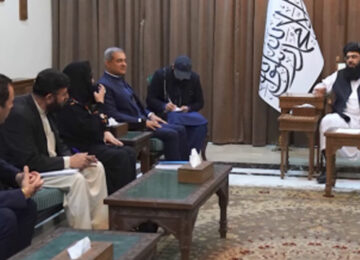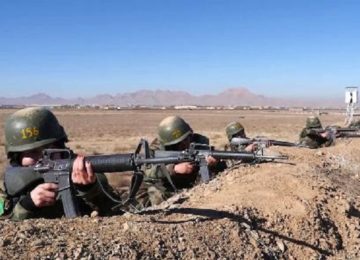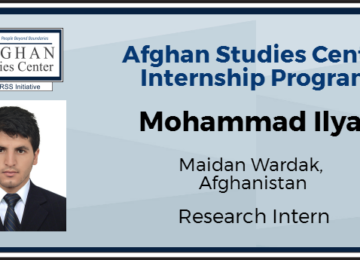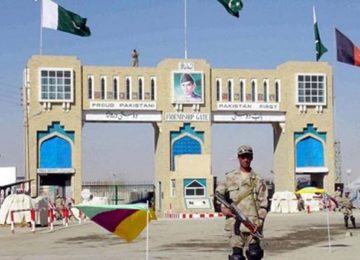November 13, 2018
November 9, 2018, marked a landmark occasion for the Afghan peace process, when Russia hosted a high level international meeting in Moscow. The event was also the first time that the Taliban formally attended such a high level meeting, indicating “some” willingness for dialogue.
The meeting was also attended by members of the Afghan High Peace Council along with representatives and observers from USA, China, Pakistan, Iran, India and the Central Asian states.
After the meeting, the Taliban said they were only willing to hold direct talks with the US government and not the Afghan government or the High Peace Council. The Taliban also stuck to their previous demand of a full US withdrawal as a prerequisite to any substantial peace talks on Afghanistan.
However, the Russia foreign ministry, according to the TASS News Agency, reported yesterday that the Taliban were willing to talk to the Afghan government only after agreeing on a timetable for US pull-out. “They [Taliban] have outlined their plan of action in detail. (They) said they will be ready to speak with the Afghan government only after fixing a timetable for the withdrawal of all foreign troops from Afghanistan with the US,” Zamir Kabulov, Kremlin’s Special Envoy for Afghanistan, told a press conference on Monday.
The US and its allies have always viewed Moscow’s peace efforts with suspicion, however, the meeting saw an about-turn from Washington as it sent its representation to such a Moscow-backed initiative for the first time. Therefore, bringing the US in the same room with the Taliban representatives was seen as a huge diplomatic success for Russia.
BBC’s Dawood Azmi believes that “the Moscow meeting highlights Russia’s return to the diplomatic forefront in Afghan affairs”. According to him, despite various reservations, especially from Washington and Kabul, all 11 countries invited to the meeting have participated in some way, making the event a success.
A former Indian diplomat, while talking to The Wire, also called the event a “diplomatic victory” for Russia. “It is a great diplomatic victory for the Russians to get the Afghans and Taliban on an international platform. This is what they had been working for the last one and half years”, the diplomat said.
The meeting also saw a major shift in policy from New Delhi, with India also sending its representatives to the event. The Times of India’s Indrani Bagchi notes that it was the first time India shared a room with the Taliban, however, making it clear that it was “non-official” representation and hence former diplomats were sent.
Even though the meeting did not result in a major breakthrough, peace efforts in Afghanistan have accelerated in recent months. Moreover, the Taliban – threatening to control 70% of Afghanistan according to a BBC report – have also shown some intent on talking peace. Taliban’s Qatar office has also held secret meetings with a senior US diplomat in July and last month.

Taliban’s control over Afghanistan (Source: BBC)
On the other hand, Pakistan is also facilitating both the US and the Afghan governments in the peace process. It was confirmed last week by Islamabad that Mullah Abdul Ghani Baradar, a senior Taliban leader, was freed from jail last month at the request of the US. “He was released to provide impetus to the peace and reconciliation efforts in Afghanistan”, Pakistani foreign ministry spokesman said.
One of the major geopolitical shifts in the Afghan War has been underlined by Russia’s active involvement in the Afghan peace process, especially its direct contact with the Taliban. Hence, this involvement has naturally raised many eyebrows, especially in Washington. However, Moscow argues that its involvement stems from its own security concerns and the US failure in Afghanistan.
In this regard, Russian envoy Zamir Kabulov says, “Afghanistan is close to our underbelly so national interests of Russia and its allies are at stake. We can’t just sit back and watch impassively what’s going on, and we have let the U.S. know that it doesn’t appear to be successful in settlement efforts”. The Russian government, according to Kabulov, also believes that the US and NATO presence in Afghanistan has exacerbated the problem, rather than solving it.
Kabulov also says that the US is reluctant to accept its failures in Afghanistan and its further use of force would only lead to thousands more victims along with ravaging the country. Kabulov says that he is also hoping to hold direct talks with US Special Representative for Afghanistan Zalmay Khalilzad later this year.
© Center for Research and Security Studies (CRSS) and Afghan Studies Center (ASC), Islamabad.








